How Brittney Griner's journey to basketball glory led her to become Vladimir Putin's prized political pawn
Meredith Cash

- Brittney Griner has spent more than eight months in Russian prison for possession of marijuana.
- Before her wrongful detainment, Griner was en route to a historic, record-breaking basketball career.
Brittney Griner has been wrongfully detained in Russia for more than eight months.
But before her February arrest — when officials at Moscow's Sheremetyevo Airport found vape cartridges containing cannabis oil in her luggage — the 6-foot-9 Houston native was best known for her incredible abilities on the basketball court.
From growing up in and around Houston, Texas, and discovering her basketball talent in early high school to becoming a NCAA hoops sensation and, eventually, a WNBA superstar well on her way to the Hall of Fame, Griner enjoyed a rapid and surreal rise to basketball glory.
But even more suddenly, her entire life has been ripped away from her.
Here is the story of how a gangly Texan grew into a generational talent — and eventually became Vladimir Putin's prized bargaining chip.
At present, Brittney Griner is famous across the globe for being essentially a political prisoner caught in the middle of a geopolitical standoff.
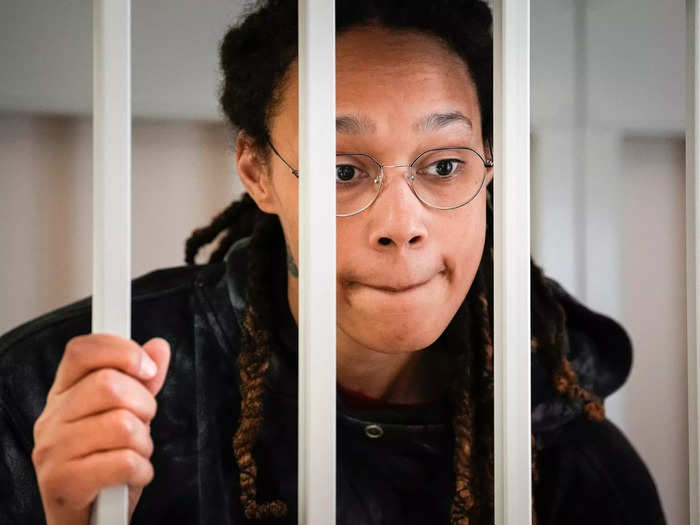
But before her February 2022 arrest in Russia, Griner was best known for her unprecedented abilities on the hardwood.
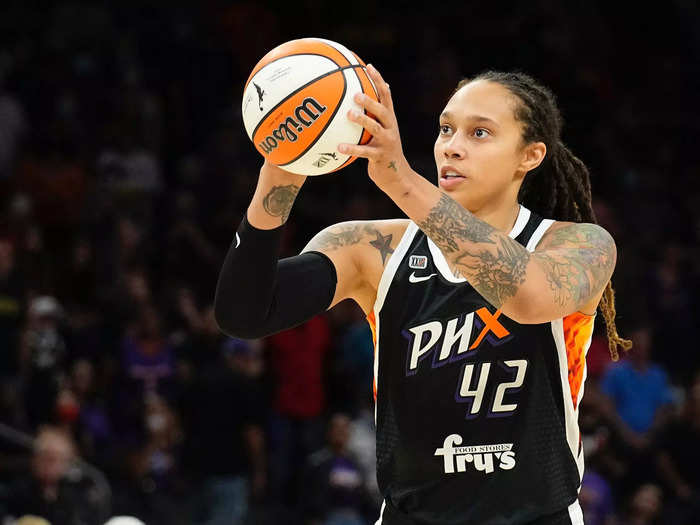
Her dad, Raymond, is a Marine veteran who served in the Vietnam War and went on to become a Harris County police officer.
Mom, Sandra, stayed at home to look after Brittney and her sister, Pier, who is five years older.
Griner also has two half-siblings — DeCarlo (17 years older) and SheKera (10 years older) — with whom she grew up so close that they "consider each other full blood" relatives, Brittney wrote in her autobiography.
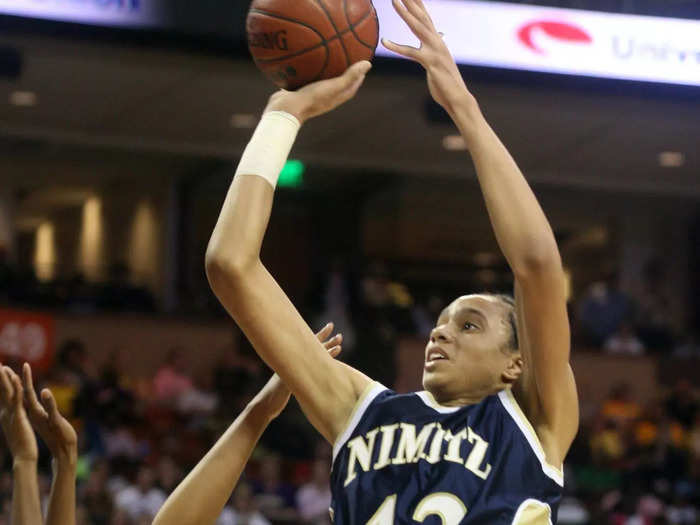
Source: "In My Skin"
Raymond was always incredibly protective of his family, and Brittney remembered him having "so many damn rules" in an attempt to keep her safe and "on the right path."
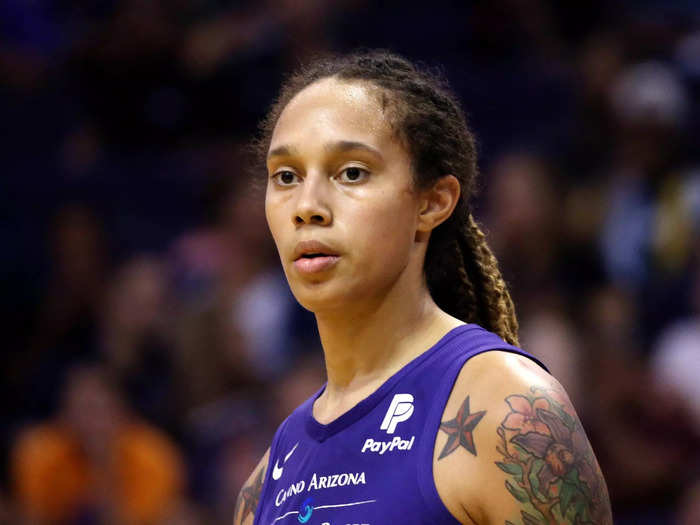
Source: "In My Skin"
She was rarely allowed to spend time with friends outside of school, and between that, her stature, and her tomboyish appearance, Griner was a regular target of bullying throughout middle school, she wrote.
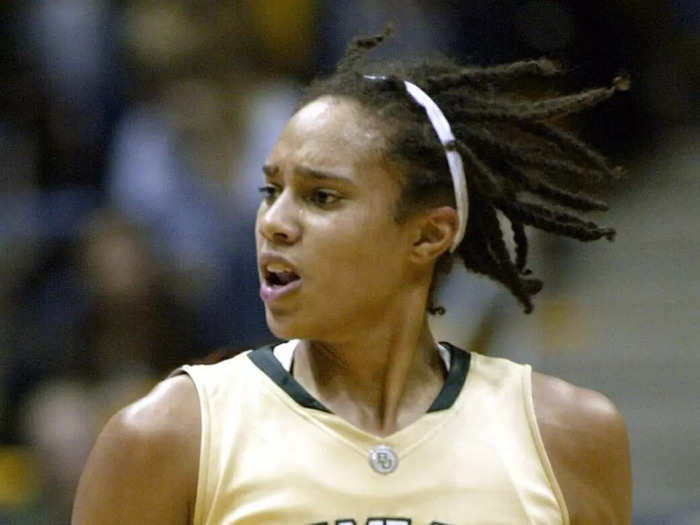
Source: "In My Skin"
In a desperate bid to be "normal," Griner recalled "wishing away so much of what would eventually make me successful at basketball: my size, strength, and tenacity."
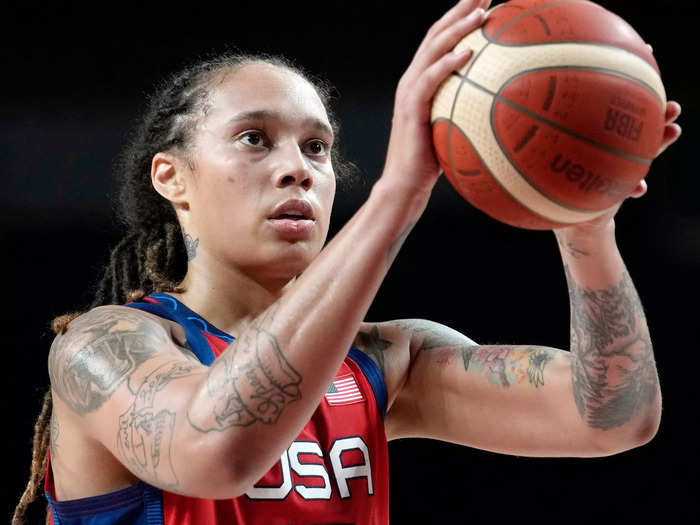
Source: "In My Skin"
But in a few years, she'd discover her one-of-a-kind gift through happenstance.
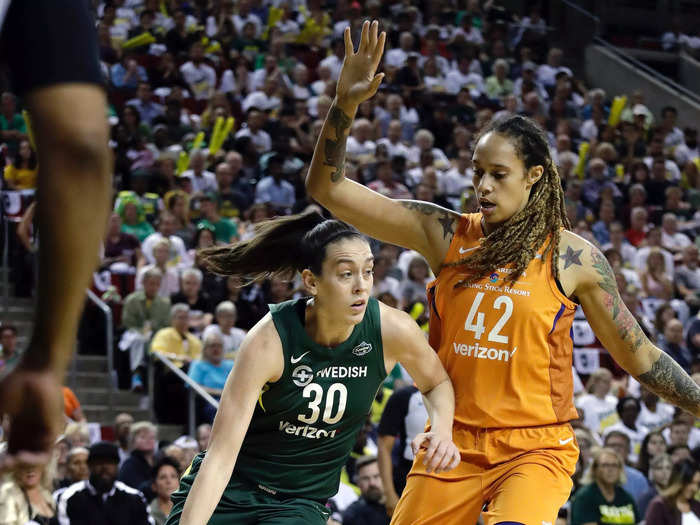
Griner played volleyball and soccer throughout childhood, but in ninth grade, her high school's varsity basketball coach saw some hoops potential in the 6-foot freshman.
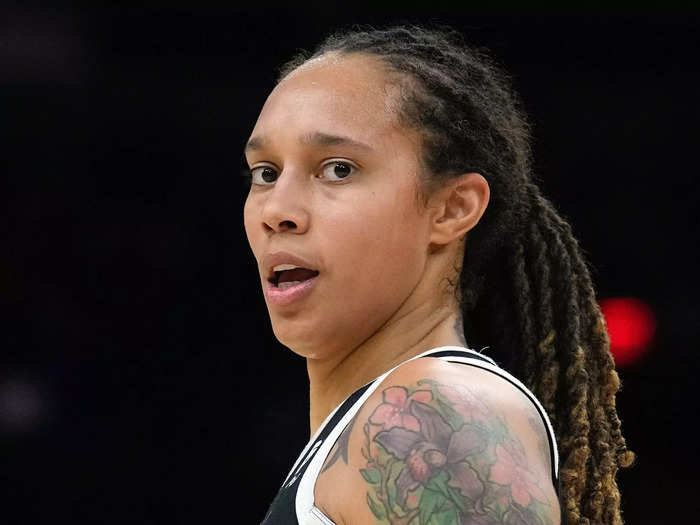
Source: "In My Skin"
She asked Griner to consider giving basketball a try, and though her "skills were trash" at that point, she was decent enough to make the junior varsity team.
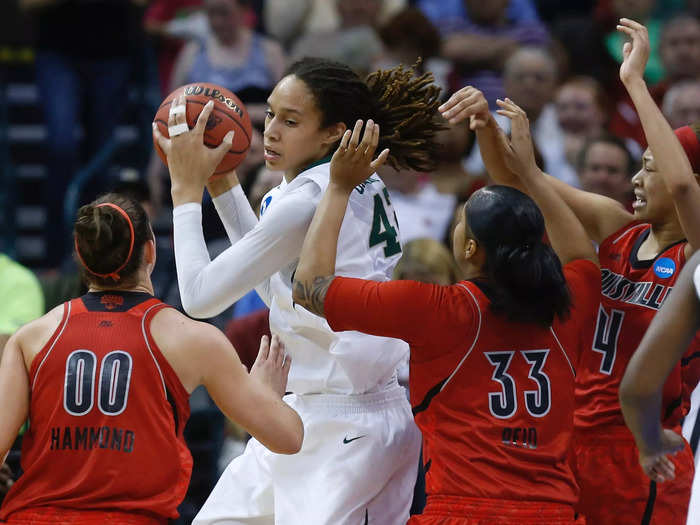
Source: "In My Skin"
That arrangement lasted all of six games, when the shot-blocking, paint-dominating Griner got promoted to the varsity squad.
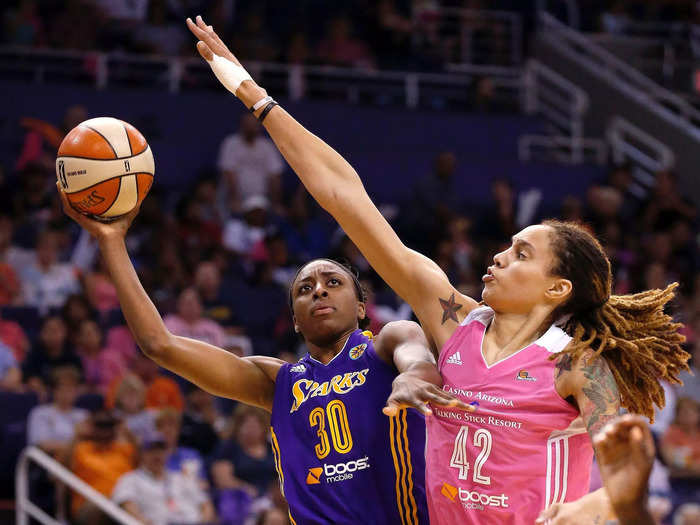
Source: "In My Skin"
That same year, Griner began to make strides personally; she embraced her sexuality and started to come out as gay to some of her peers, as well as her mom.
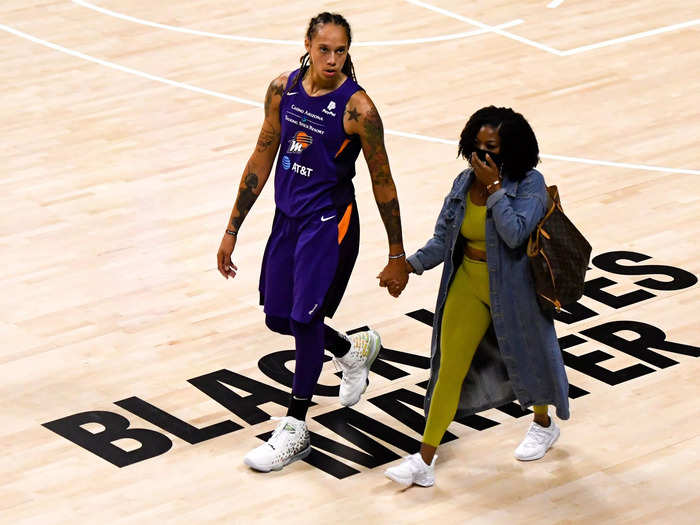
By the time she started her sophomore year, three inches taller with improved skills and a remarkable ability to dunk on a regulation rim, Griner caught the attention of both college programs and the media.
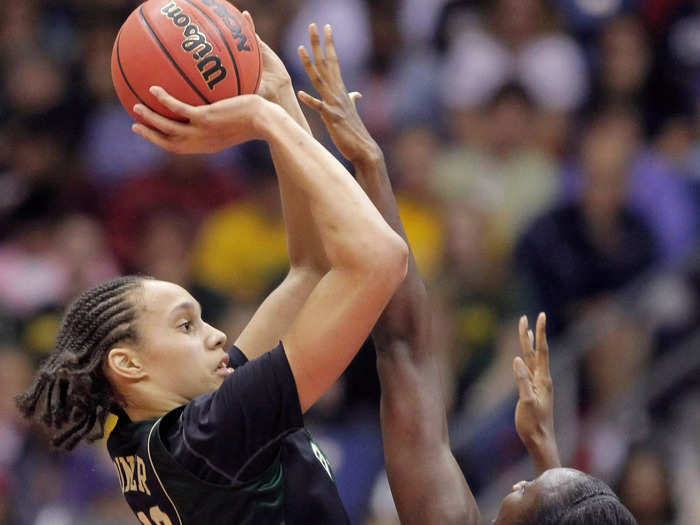
And by the end of her sophomore year, when the 6-foot-6 star had broken out to average 22 points, 11 rebounds, and six blocks per game, she had really solidified her position as a top recruiting target for major Division I programs.
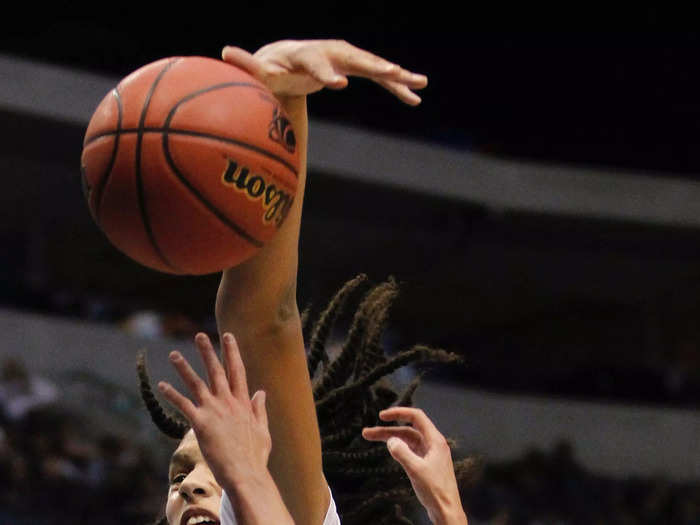
Source: "In My Skin"
Despite all the hype surrounding her — and the fact that she could've had her pick of any number of top-tier colleges — Griner "only had eyes for Baylor" from the very beginning.
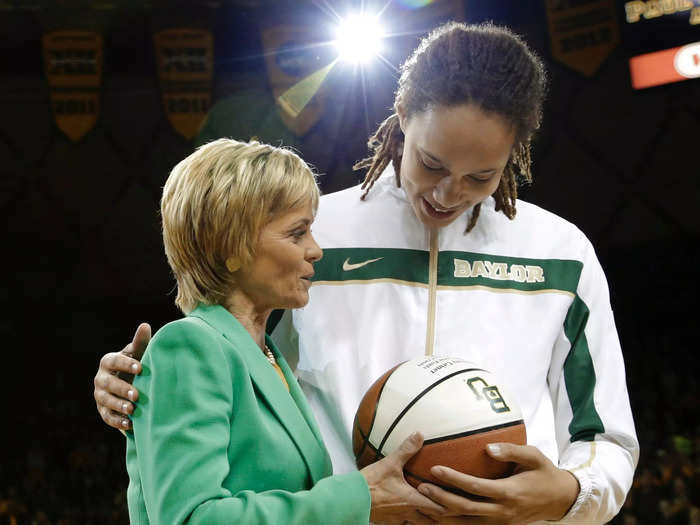
Source: "In My Skin"
Griner liked the idea of staying close to home, going to school on a relatively small campus, and playing for Hall of Fame head coach Kim Mulkey — whose "intense, tough-talking authority" reminded her of her father.
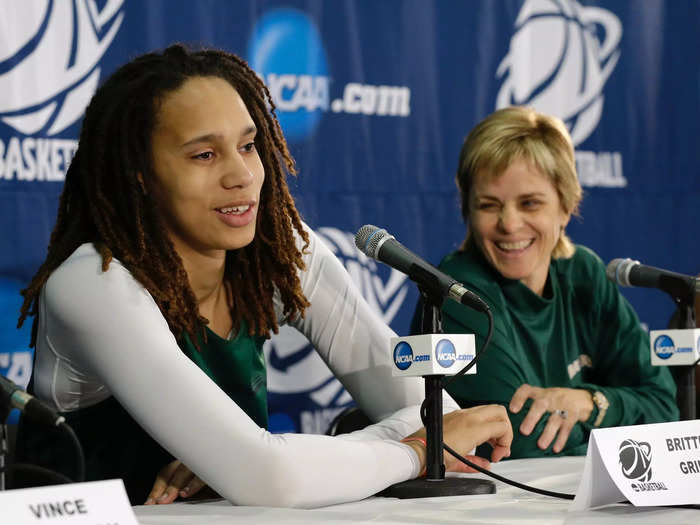
Source: "In My Skin"
And so, the summer after that breakout sophomore season, Griner committed to Mulkey's Baylor Bears.
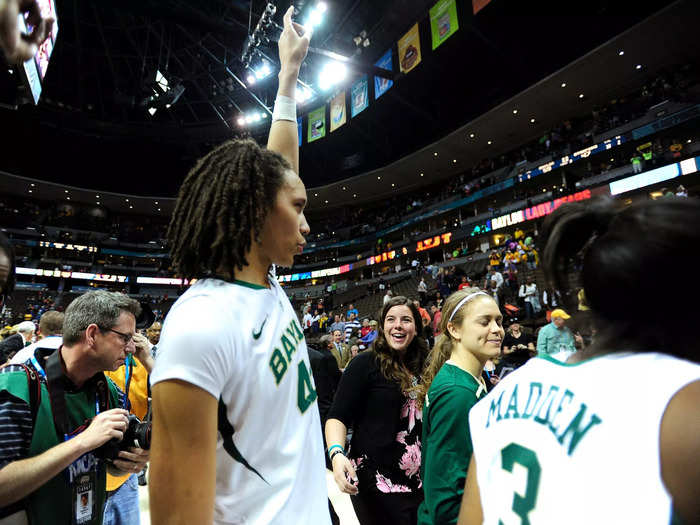
Even despite tumult in her home life towards the end of high school, Griner was excelling on the hardwood; she averaged 33 points, 15.5 rebounds, and 11.7 blocks per game during her senior season.
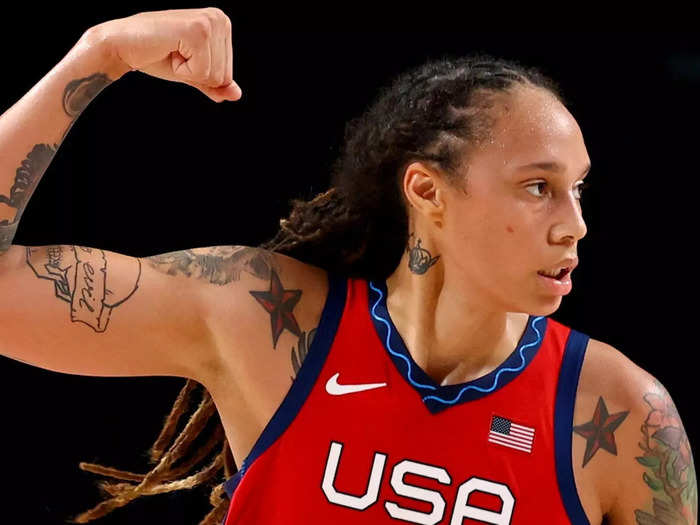
Less than a year later, when she arrived at Baylor's campus in Waco, Texas, she was ready to keep up that momentum.
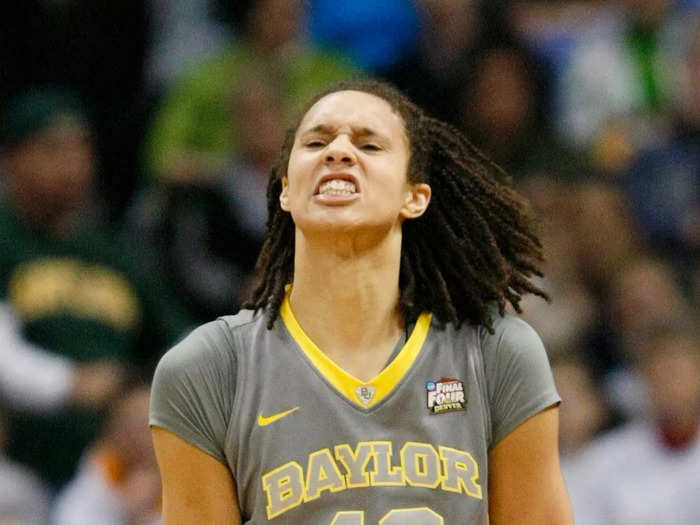
And she did — starting all 35 games and averaging 18.4 points, 8.5 rebounds, and 6.4 blocks per game during her inaugural campaign.
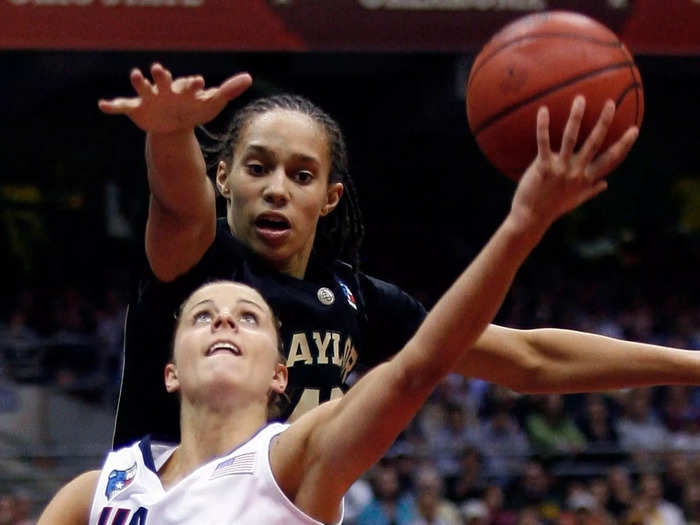
But Year 1 in Waco came with its fair share of hiccups, like the time Griner forgot her sneakers and ran the team's timed mile in Vans.
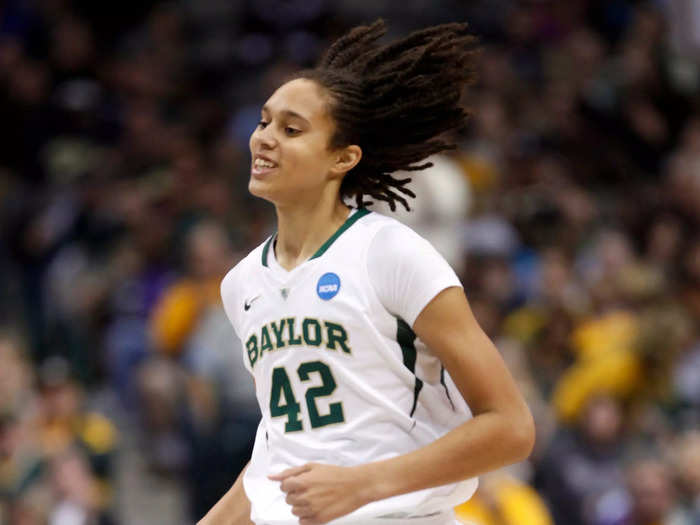
Or, more seriously, when she lost her temper during an already physical game and punched Texas Tech's Jordan Barncastle in the face, breaking her nose.
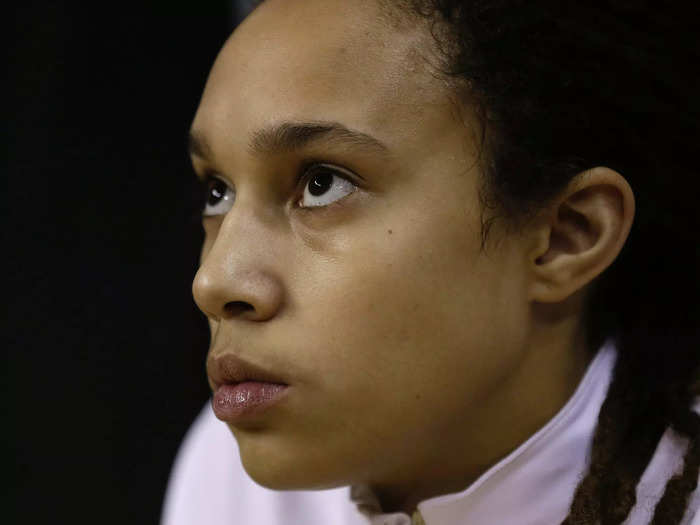
Source: ESPN
But she wrote that she grew from the experience through mandated community service, writing Barncastle an apology letter, and — perhaps most notably — going to therapy and learning to control her emotions.
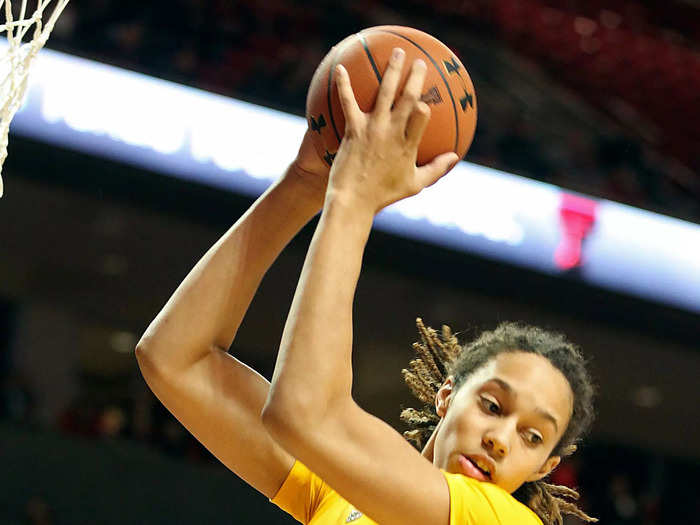
Source: "In My Skin"
Once again, Griner managed to excel on the court despite tumult she was facing off of it; 23 points, 7.8 rebounds, and 4.6 blocks per game her sophomore year were good enough for First Team All-America honors.
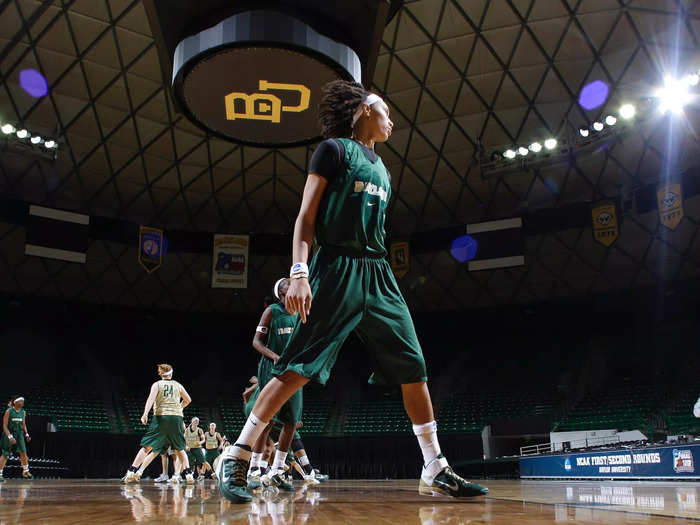
Griner improved on her already remarkable numbers during her junior season. Averaging 23.2 points, 9.5 rebounds, and 5.2 blocks per game, she led Baylor to an undefeated season and a national title.
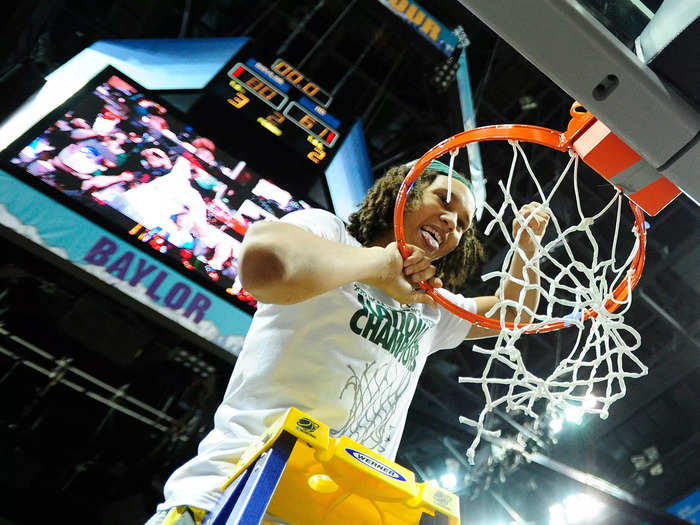
The 6-foot-9 superstar continued her dominance as a senior, going on to become the only NCAA basketball player — man or woman — to score 2,000 career points and block 500 career shots.
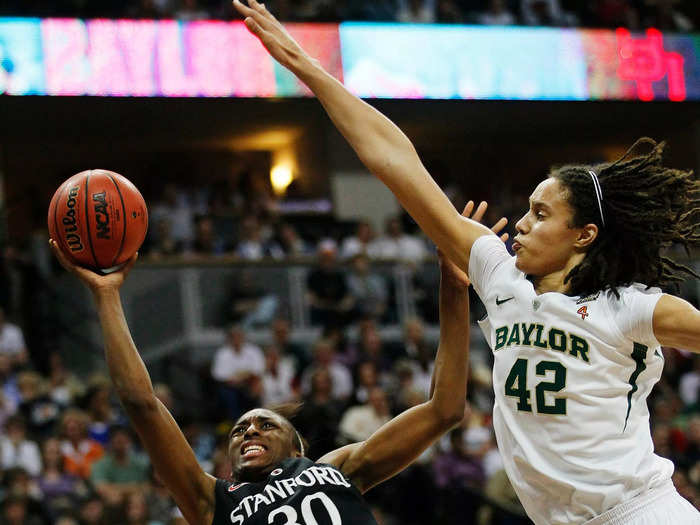
Nearly a decade after she left college, Griner's 748 career blocks still stand as the most by a single player — regardless of gender — in NCAA history.
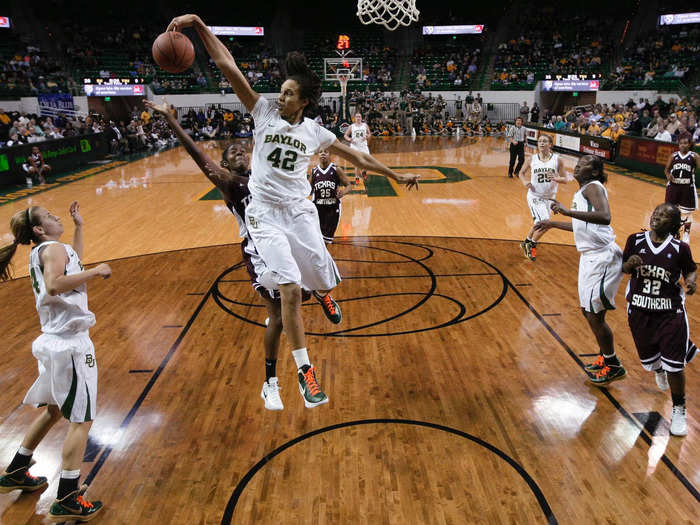
To no one's surprise, Griner was the top pick in the 2013 WNBA Draft.
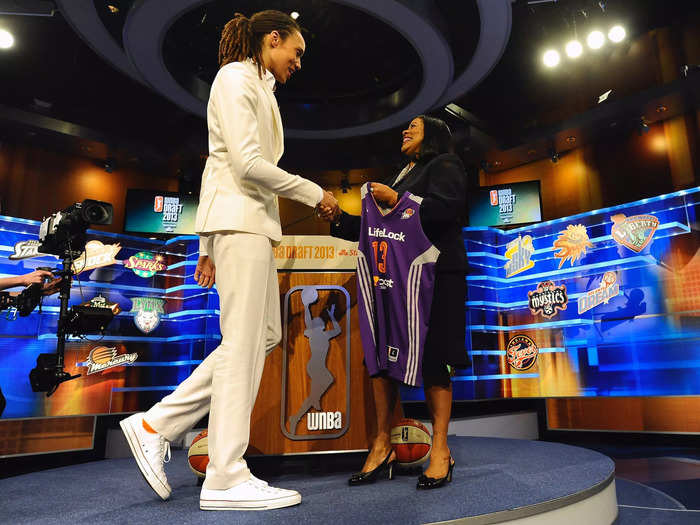
Once she arrived in Phoenix and teamed up with stars Diana Taurasi and Candice Dupree, she was almost immediately able to help bring the Mercury to new heights.
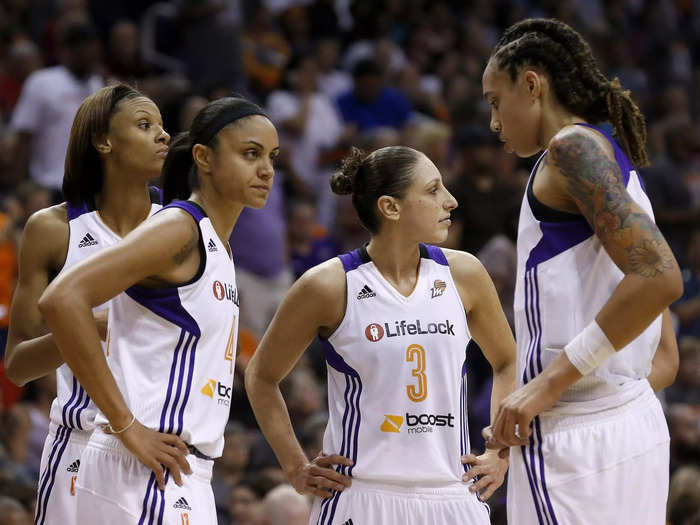
Griner found success early in her WNBA career, earning a WNBA All-Star bid as a rookie and leading the league with 3.0 blocks per game.
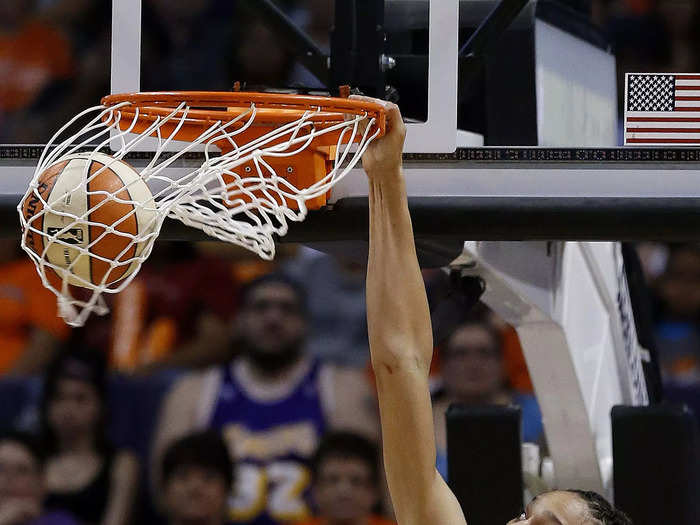
Her numbers improved the next year en route to another All-Star nod, and with new head coach Sandy Brondello at the helm, the Mercury thrived.
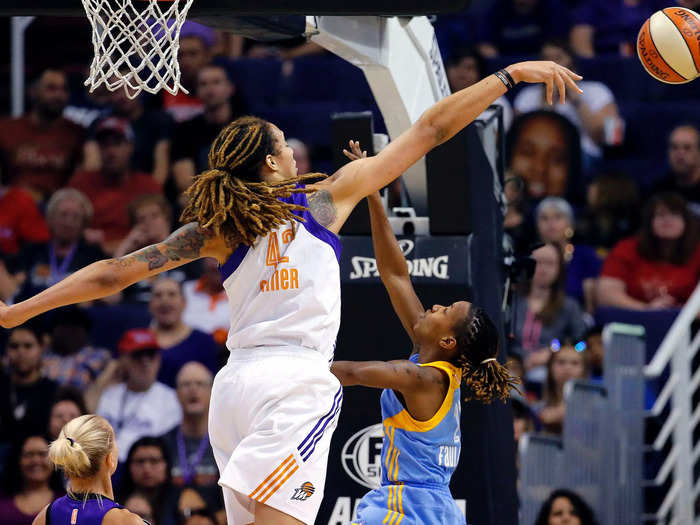
They set the record for most regular-season wins in WNBA history, then swept the Chicago Sky to bring the franchise's third WNBA championship trophy back to Phoenix.
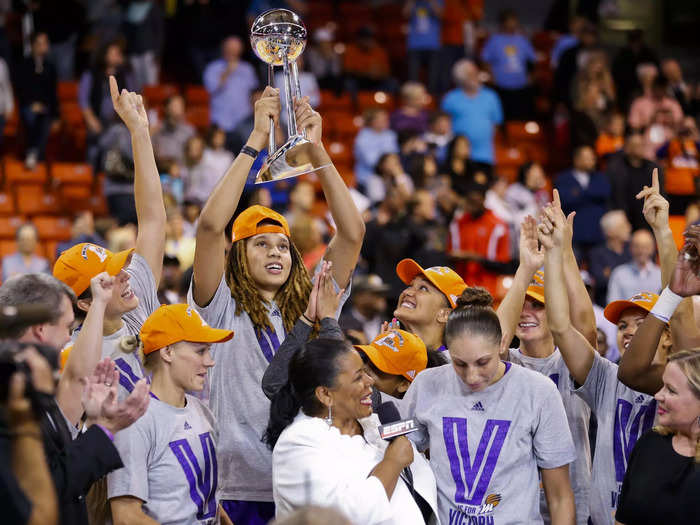
Off the court, Griner got engaged to fellow WNBA player Glory Johnson in August 2014 and the couple married the following May, despite a well-publicized domestic incident just two weeks earlier.
Police arrested both Griner and Johnson at their home in suburban Phoenix on April 22, 2015 after responding to a report of a fight between the two. On May 15, the WNBA suspended both Griner and Johnson for seven games each after Griner pleaded guilty to disorderly conduct charges and agreed to 26 weeks of domestic violence counseling. Johnson ultimately pleaded not guilty and the charges against her were dismissed.
Source: The New York Times, AP
Johnson gave birth to twins, conceived through IVF, in October 2015. But the couple ultimately divorced eight months later.
In August 2018, Griner became engaged to Cherelle Watson. The couple married nine months later.
Over the course of her WNBA career, Griner has led the league in scoring twice and blocks eight times. She's played in eight All-Star games, won two Defensive Player of the Year awards, and has been named to six All-WNBA teams.
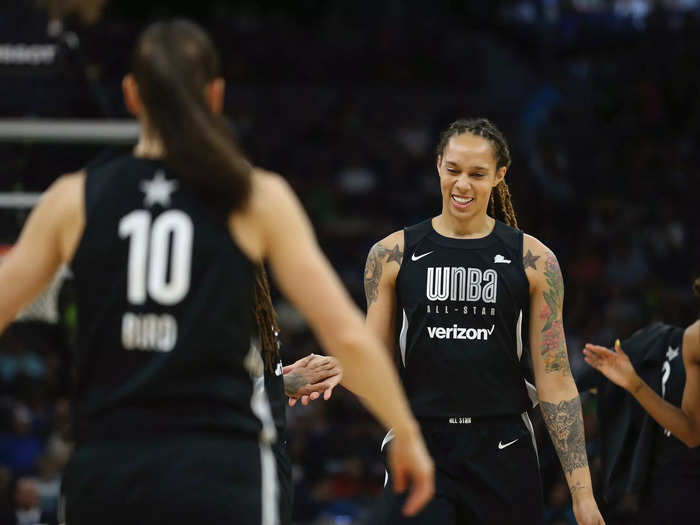
While still in the middle of her career, she was named one of the WNBA's 25 greatest players of all-time, as signified by her inclusion on the WNBA 25th Anniversary Team.
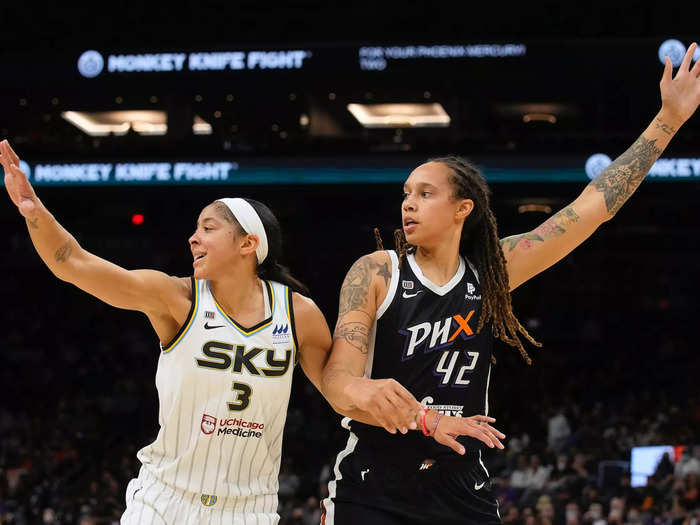
Her success extended beyond the WNBA as well.
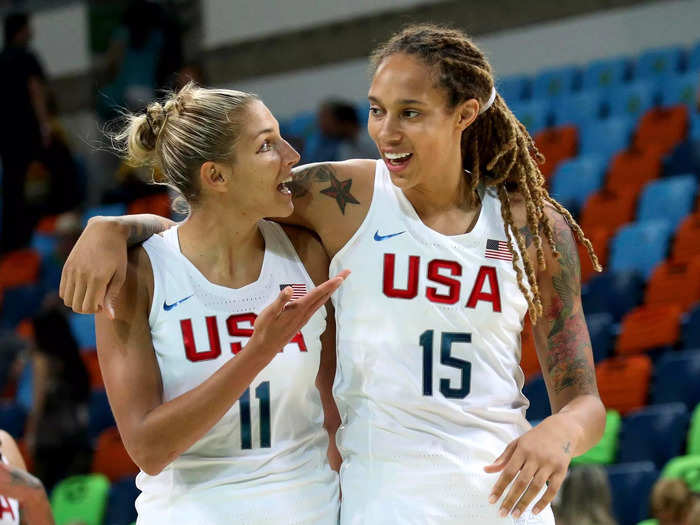
She helped lead Team USA to gold medals at the 2016 Rio Olympics and 2020 Tokyo Olympics.
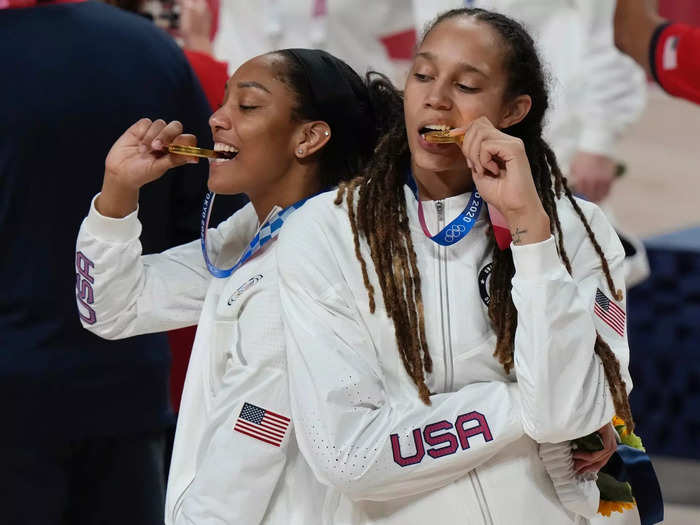
And she's also won two FIBA World Cups with USA Basketball.
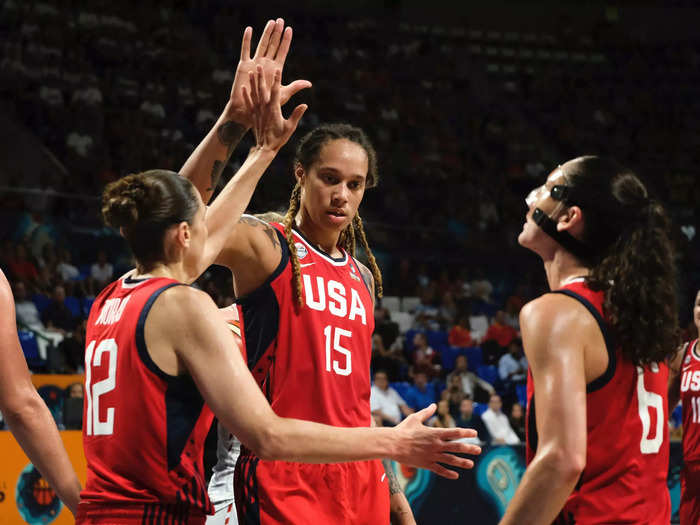
During the WNBA off-season, Griner would also routinely travel overseas to supplement her relatively modest US salary from the league.
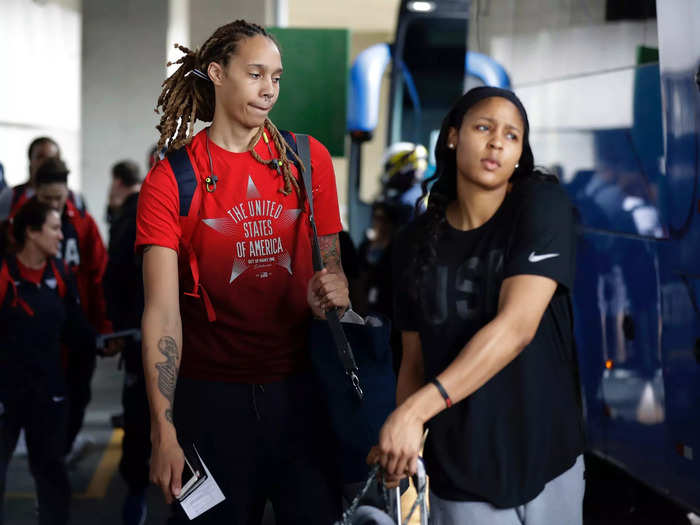
She played in China for the Zhejiang Golden Bulls after her rookie WNBA season.

But from the following year, she played in Russia for European juggernaut UMMC Ekaterinburg.
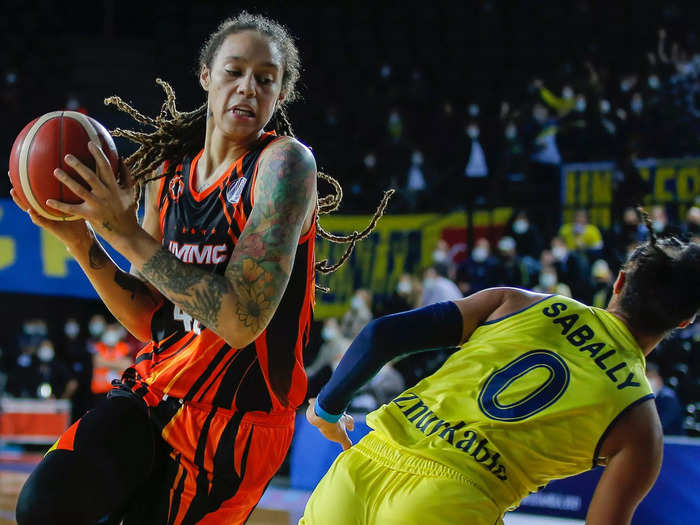
The oligarch-owned championship factory employed countless WNBA superstars, and Griner reportedly commanded a seven-figure salary to play there each winter.
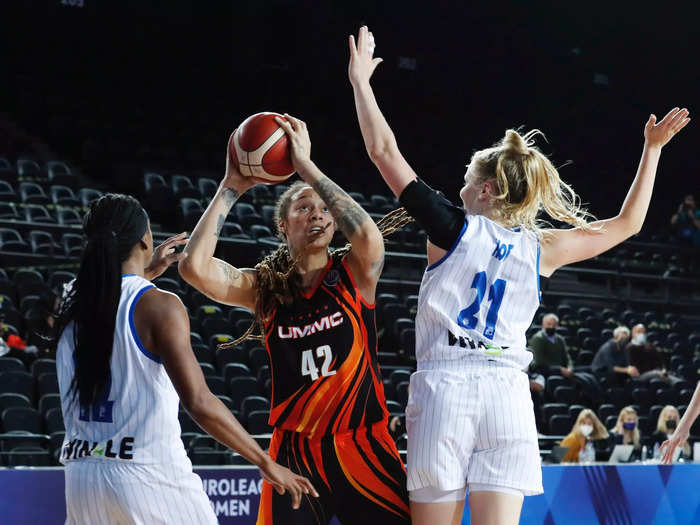
It was no wonder Griner played there for eight consecutive off-seasons; she and her fellow American teammates were treated likely royalty during their time overseas.
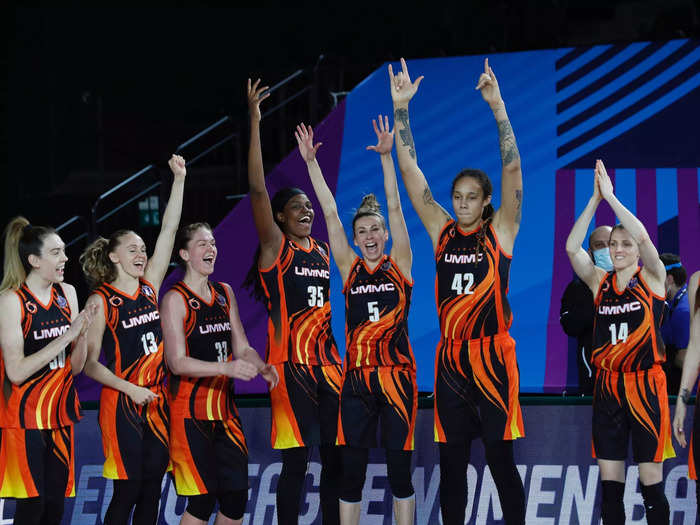
And for good reason; with Griner at their disposal, Ekaterinburg won three Russian National League titles and four EuroLeague championships.
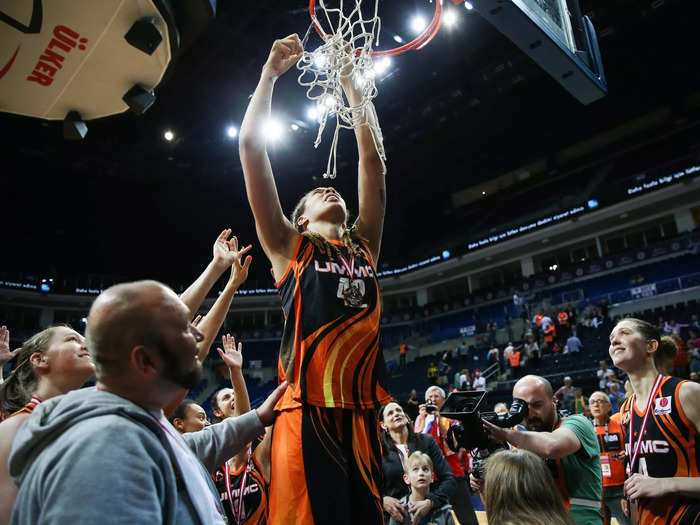
But the tides turned in 2022, as Russian-American relations grew increasingly fraught under President Vladimir Putin's threat to invade neighboring Ukraine.
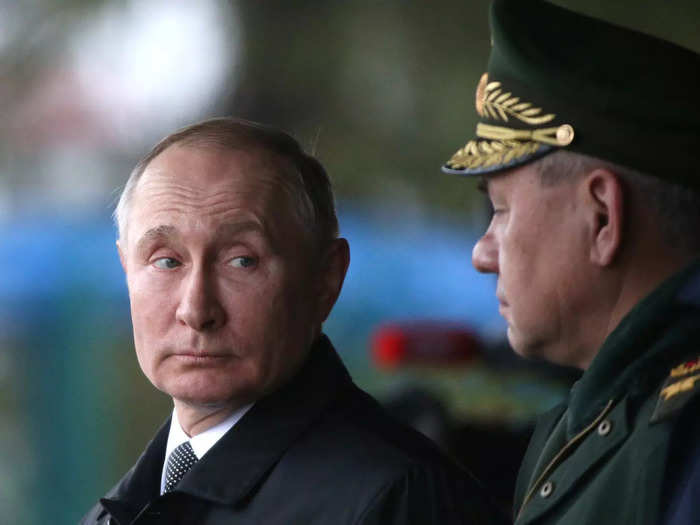
By the time Griner boarded a plane to Russia to rejoin Ekat for the second leg of the 2021-2022 season, the WNBA had begun warning players to abort plans for playing in the country.
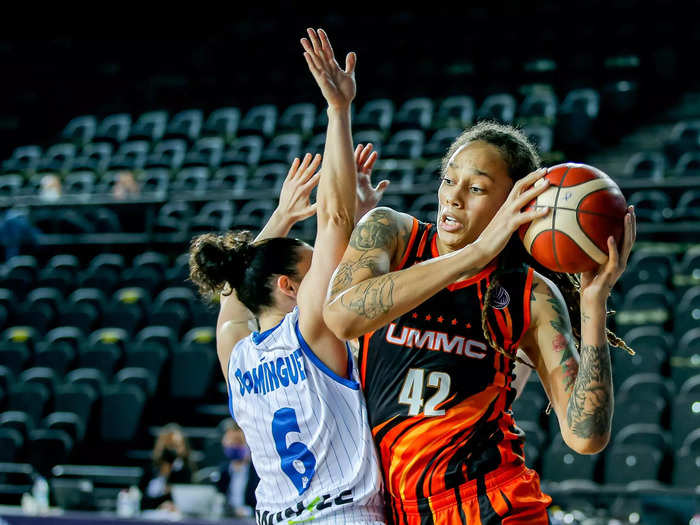
But it was too late. Griner landed at Moscow's Sheremetyevo Airport on February 17 and, upon going through security, was found to have smuggled vapes with 0.702 grams of cannabis oil in her luggage.
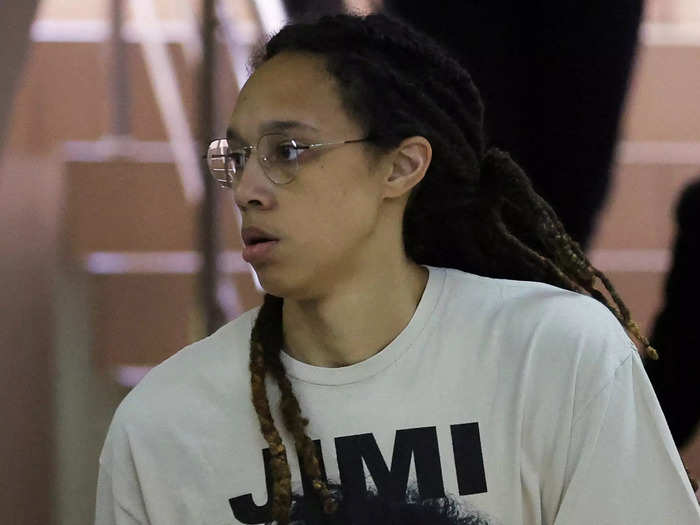
She maintains that, while packing hurriedly prior to her flight, she forgot to clear her bag and inadvertently brought her prescribed medicinal marijuana in her luggage.
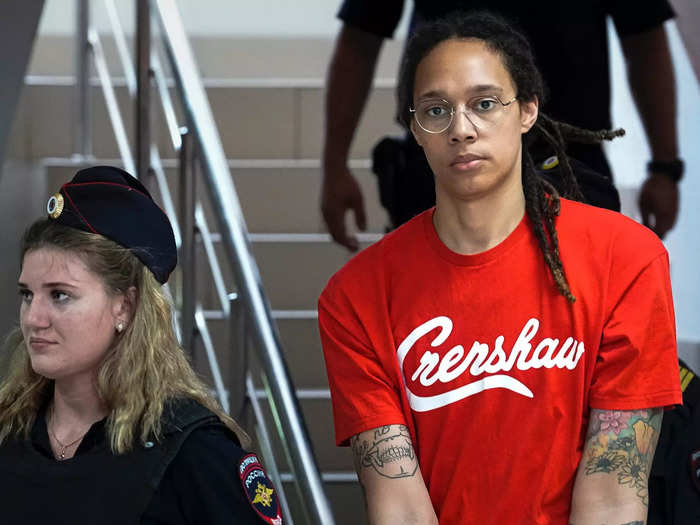
Griner was arrested and taken into Russian custody shortly thereafter, and just one week after she was first detained, Putin began Russia's invasion of Ukraine.
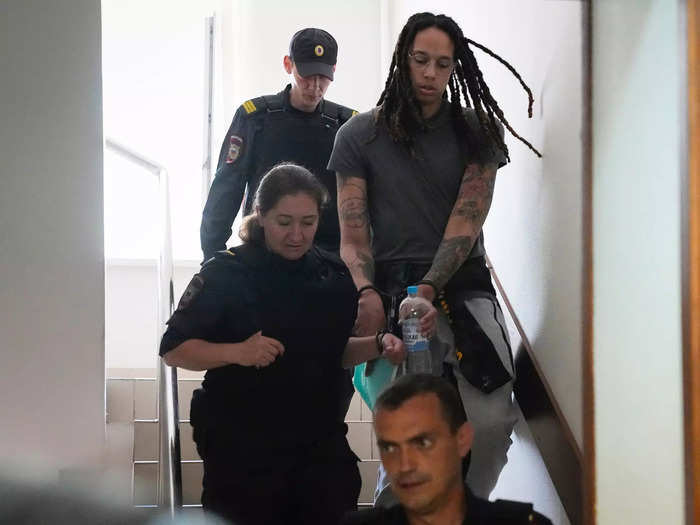
The US deemed Griner wrongfully detained in May, signaling that her home country believed her to be a political prisoner.
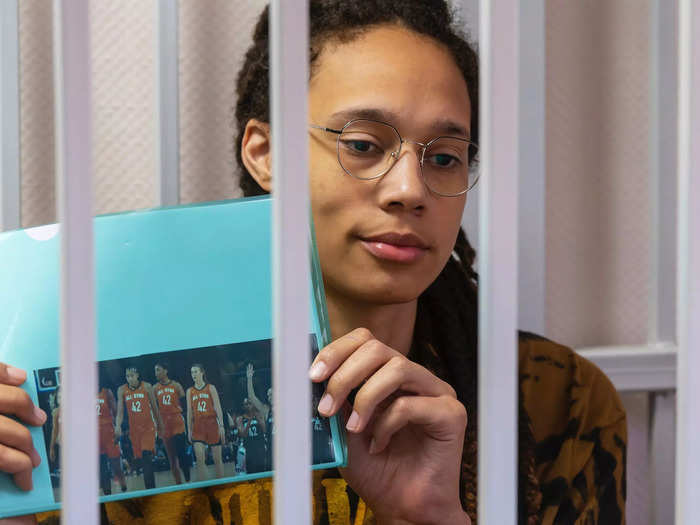
And when, half a year after her initial arrest, Griner was convicted and sentenced to a disproportionate nine years in Russian prison, US President Joe Biden reinforced those sentiments.
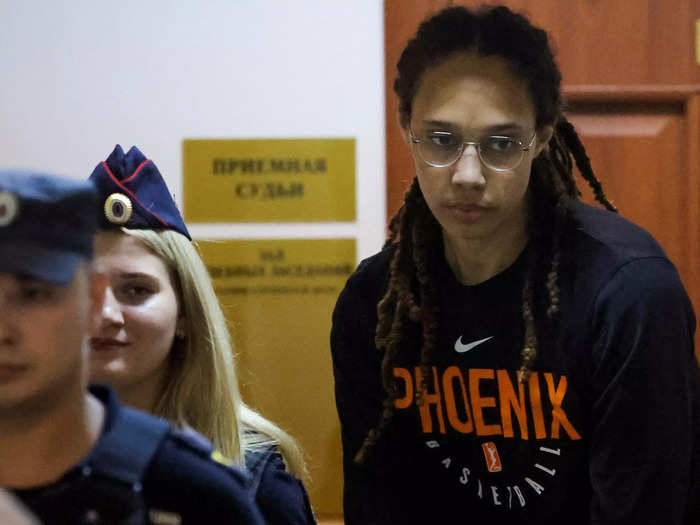
Griner lost her appeal in late October, all but guaranteeing that she'll spend time at one of Russia's infamous penal colonies.

It's unclear which one she'll be sent to, but the most notorious in the system feature forced labor, regular abuse, and rampant disease.
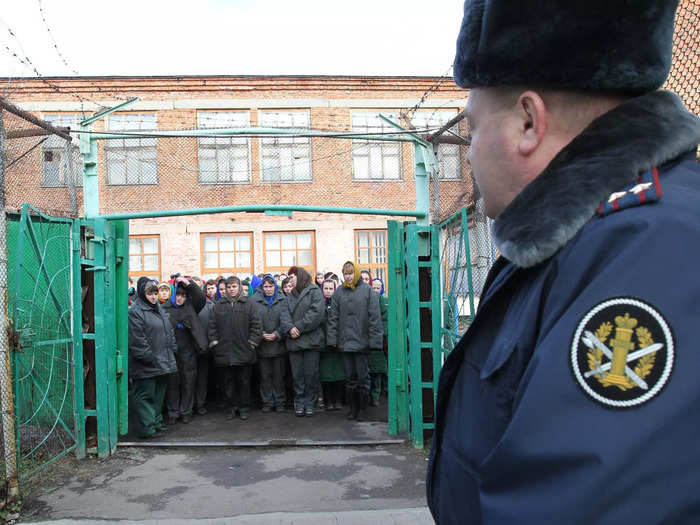
Her only hopes of a timely return stateside involve a prisoner exchange between Russia and the US.
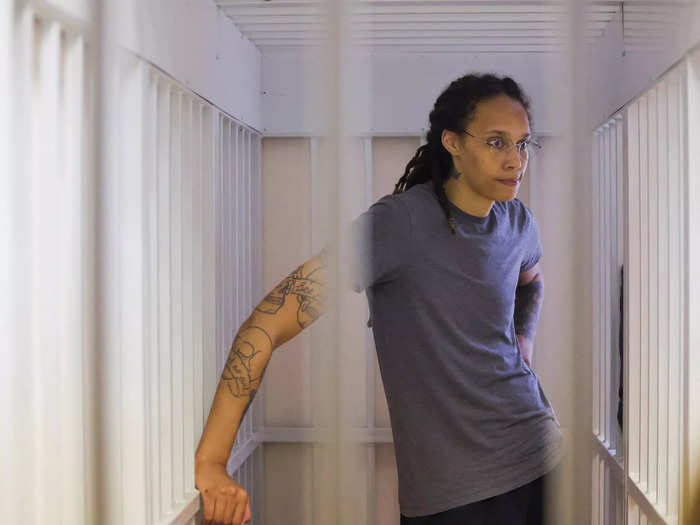
The White House has reportedly offered to release infamous Russian arms dealer Viktor Bout to secure the freedom of Griner and ex-US Marine Paul Whelan.

But the Kremlin has yet to respond with a reasonable counteroffer, the US government says.
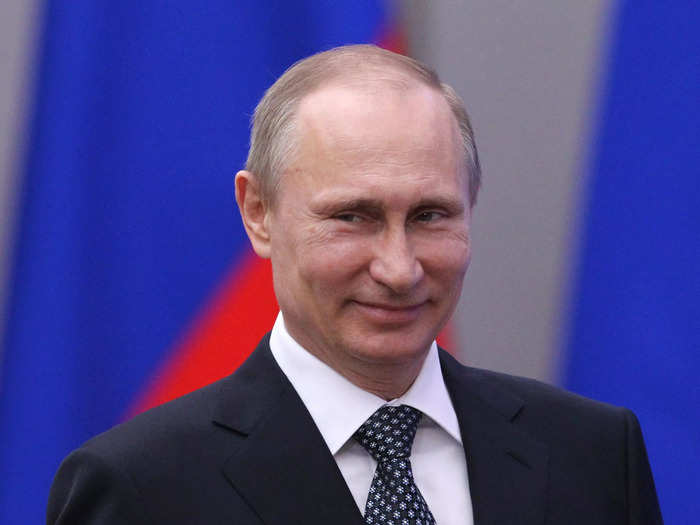
Meanwhile, Griner is rapidly losing her mental strength, according to her wife and attorneys, and she fears having to complete her entire sentence under brutal conditions.
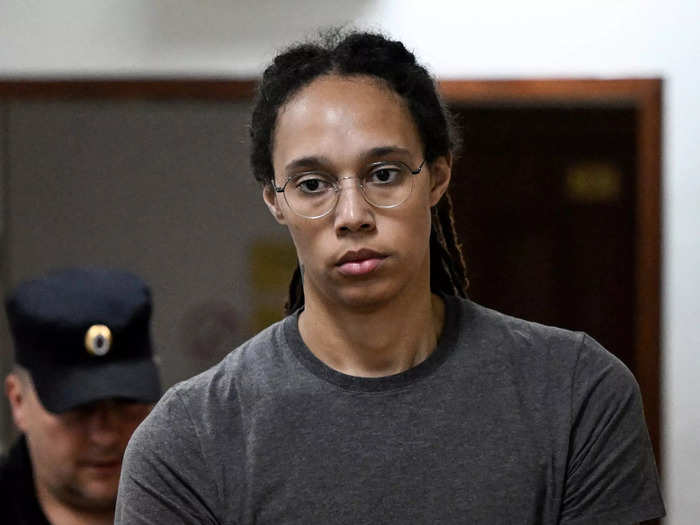
Readers can learn more about what Griner could face in one of Russia's penal colonies below:
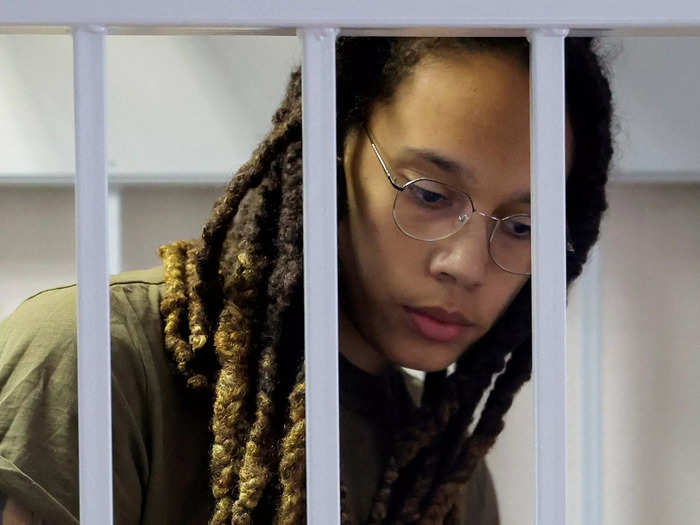
Popular Right Now
Popular Keywords
Advertisement